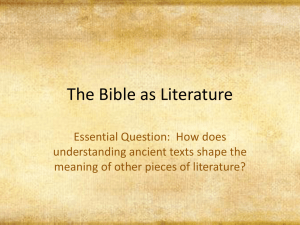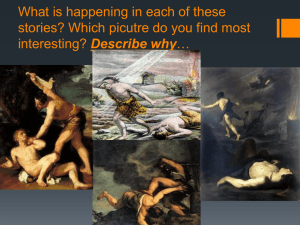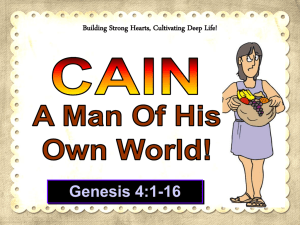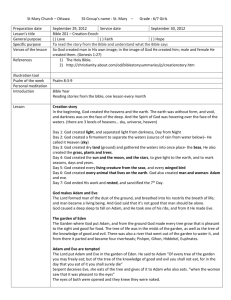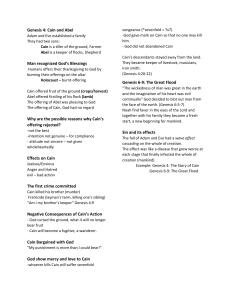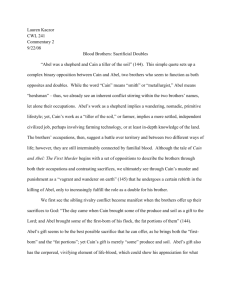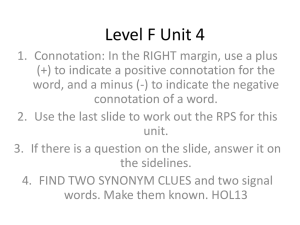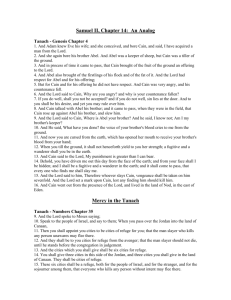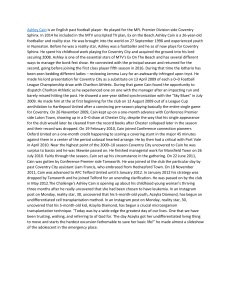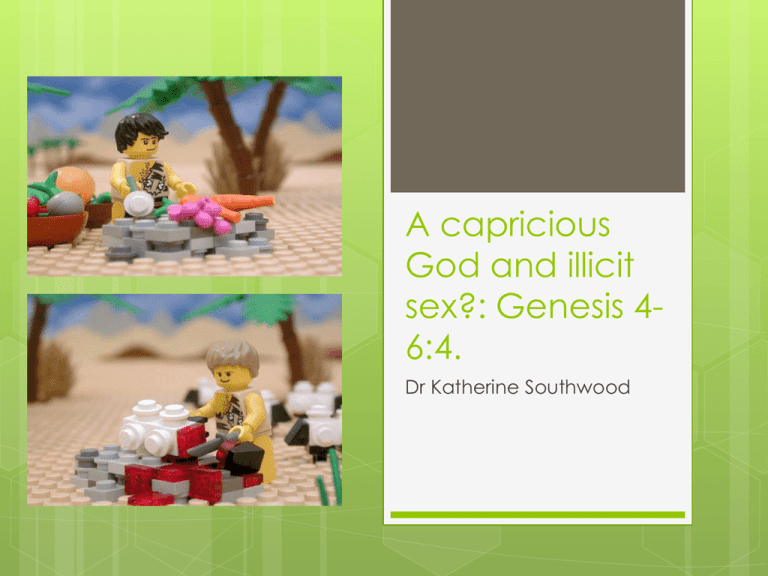
A capricious
God and illicit
sex?: Genesis 46:4.
Dr Katherine Southwood
Problem
Why was Cain’s offering rejected?
‘ מנחהgift / offering’
LXX δωρον meaning ‘gift’ and θυσια meaning
‘sacrifice’ .
Philo:
What is the difference between a gift and a
sacrifice? He who slaughters a sacrifice, after
dividing it, pours the blood on the altar and takes
the flesh home. But he who offers something as a
gift offers the whole of it, it seems, to him who
receives it. And the lover of self is a divider, as was
Cain while the lover of God is a giver as was Abel.
Why the rejection?
Timing? ‘( ויהי מקץ ימיםin the course of time’).
Manner of the offering? Gen 4:7
‘If you do well will you not be accepted (or
forgiven)? And if you do not do well sin is
crouching(?) at the door.’ (Hebrew, translation is
difficult here)
‘If you brought it correctly, but did not correctly
divide it have you not sinned?’ (Greek)
Was Cain’s offering sinful?
Post expulsion
Increase
in violence
Increase in disobedience (compare Cain
and Eve)
Abel’s blood cries out from the ground:
murder.
The mark of Cain
The land of Nod.
Genesis 6:1-4
When men began to increase in number on the
earth and daughters were born to them, the sons of
God saw that the daughters of men were beautiful,
and they married any of them they chose.
Then the LORD said, “My Spirit will not contend with
man forever, for he is mortal; his days will be a
hundred and twenty years.”
The Nephilim were on the earth in those days—and
also afterward—when the sons of God went to the
daughters of men and had children by them. They
were the heroes of old, men of renown.
Who are the ‘sons of God’
בני האלהים
Giants?
Septuagint.
Angels? 1 Enoch 6-11.
Warriors? Numbers 13:33
Descendants of Seth?
Descendants of Cain?
Who are the ‘sons of God’
בני האלהים
Ps
2:7: ‘He said to me, “You are my Son;
today I have become your Father.’
Job 38:7: while the morning stars sang
together and all the angels ()בני האלהים
shouted for joy?
They were good looking טוב
‘bracelets,
decorations, … jewellery, the
beautifying of the eyelids, all kinds of
precious stones…’ (1 Enoch 8:1).
Morally good?
טובhas a wide semantic range. Compare
‘good’ and ‘evil’ in Nehemiah 2.

